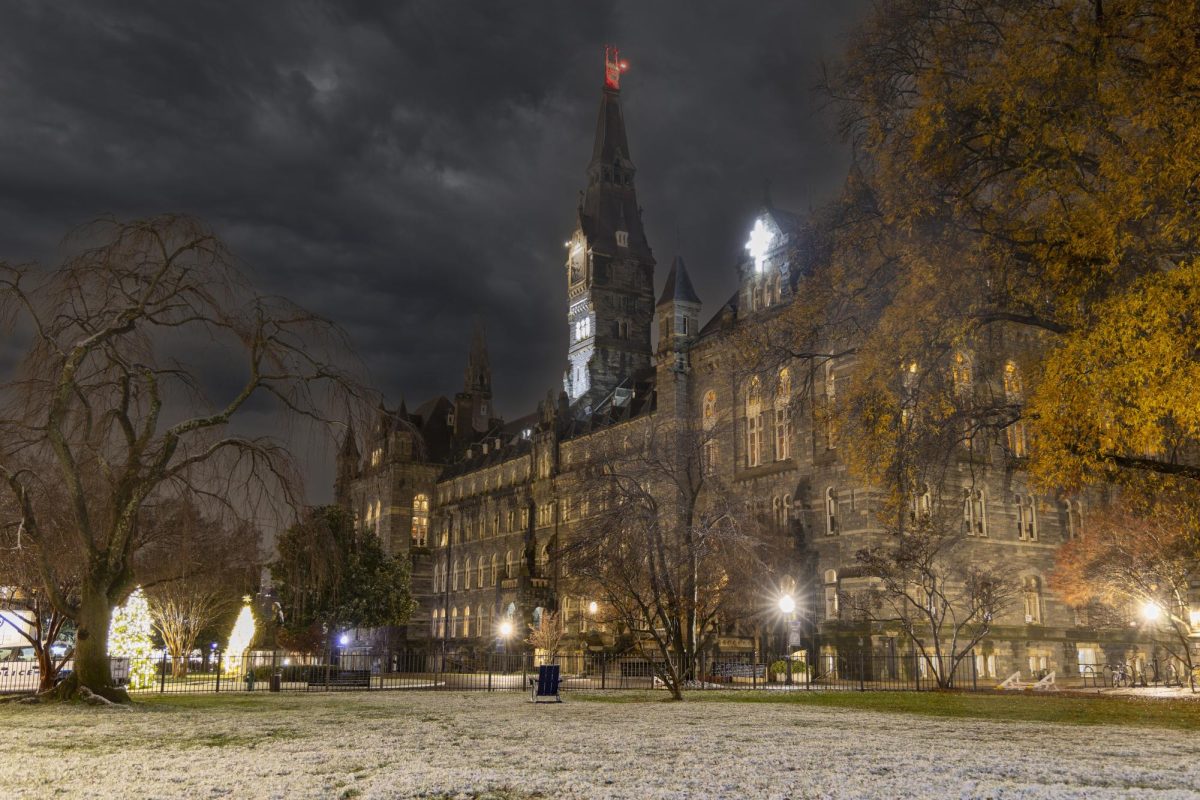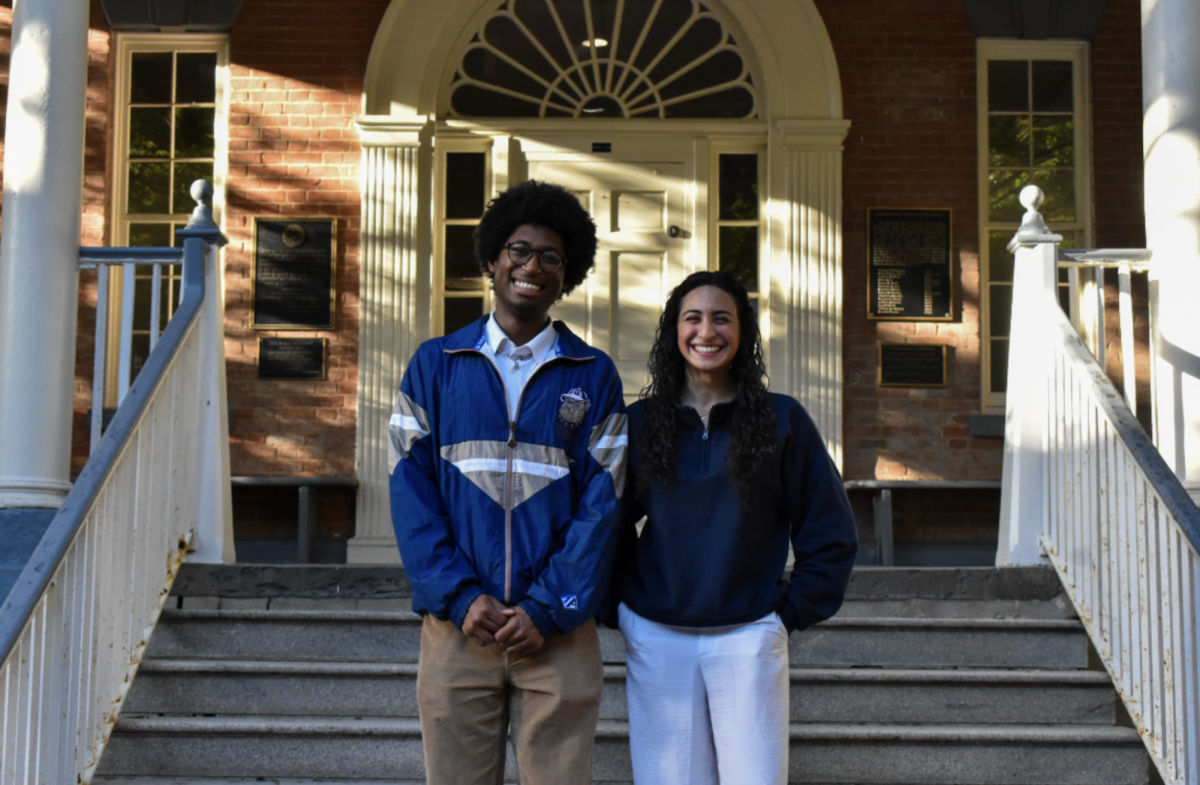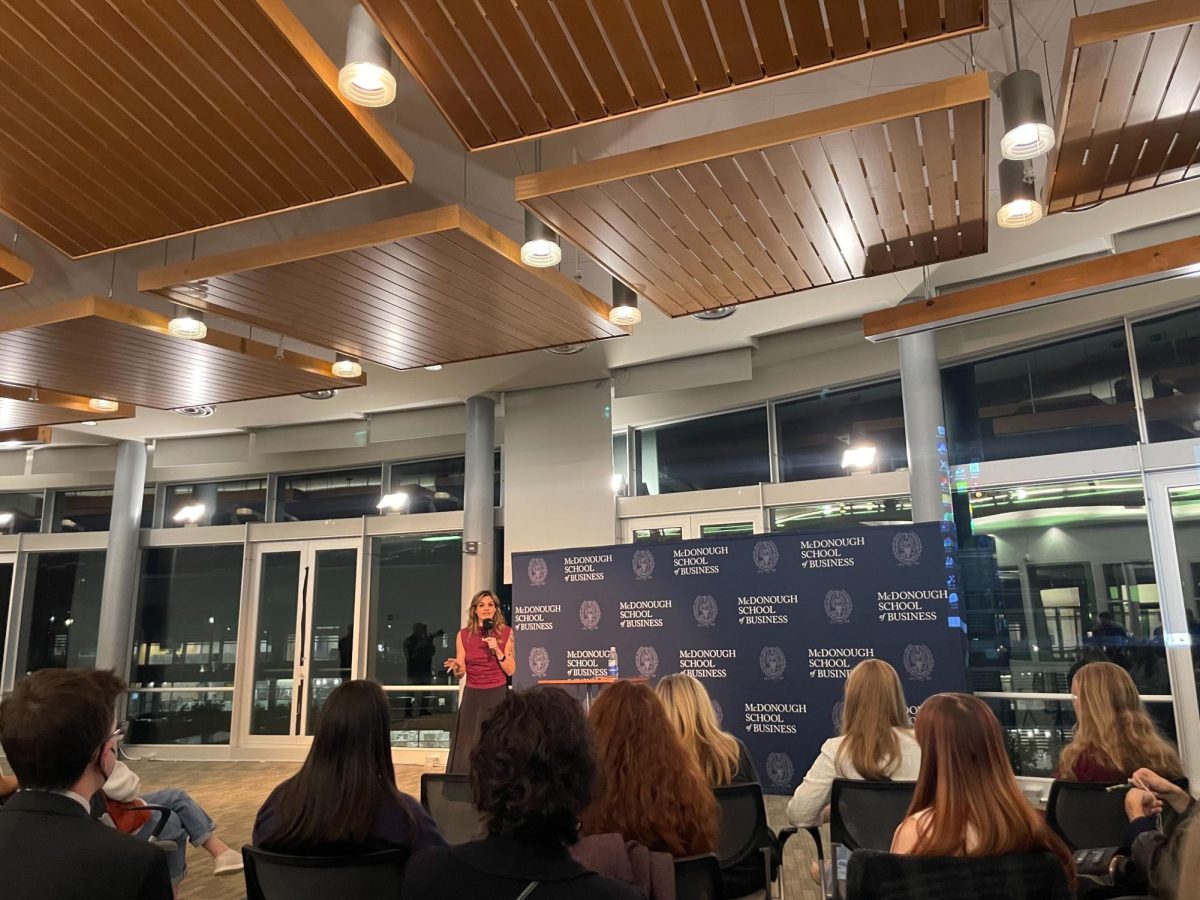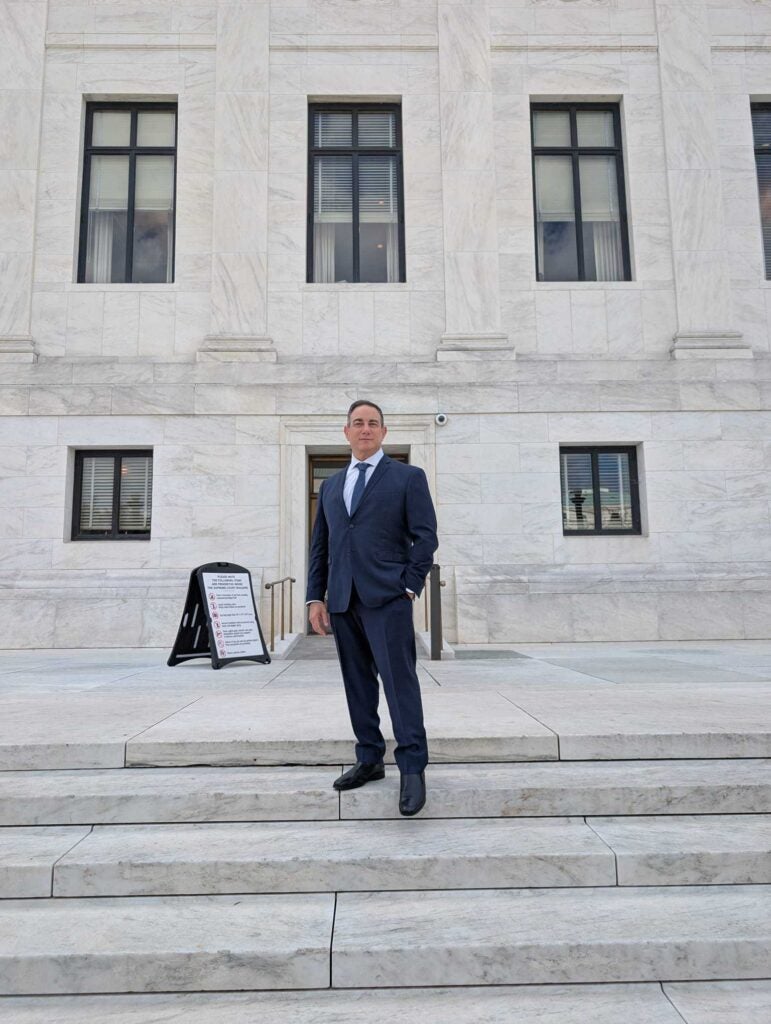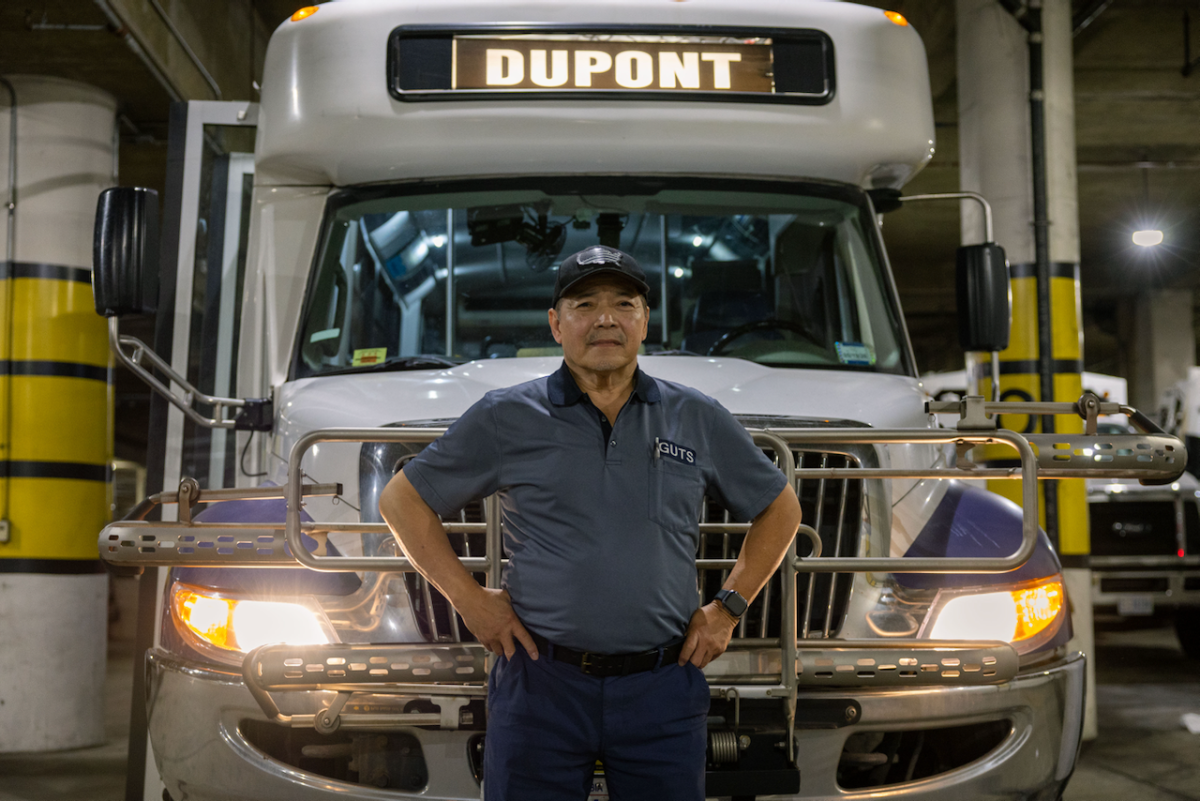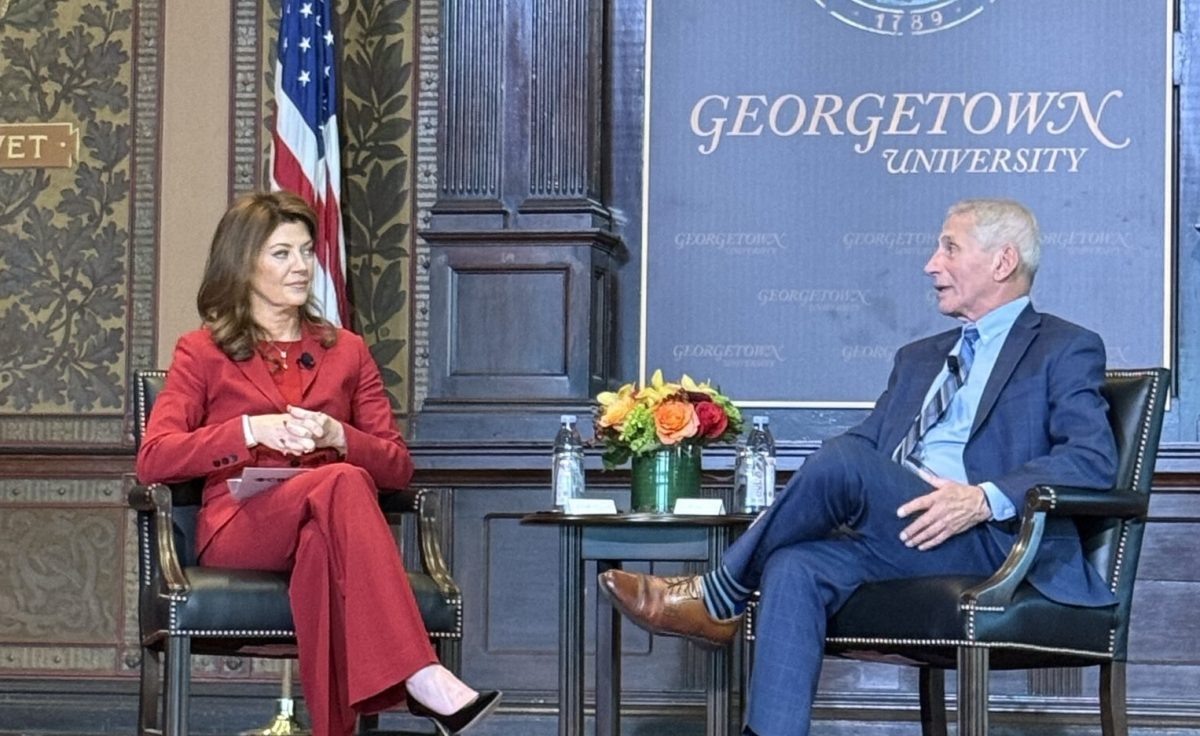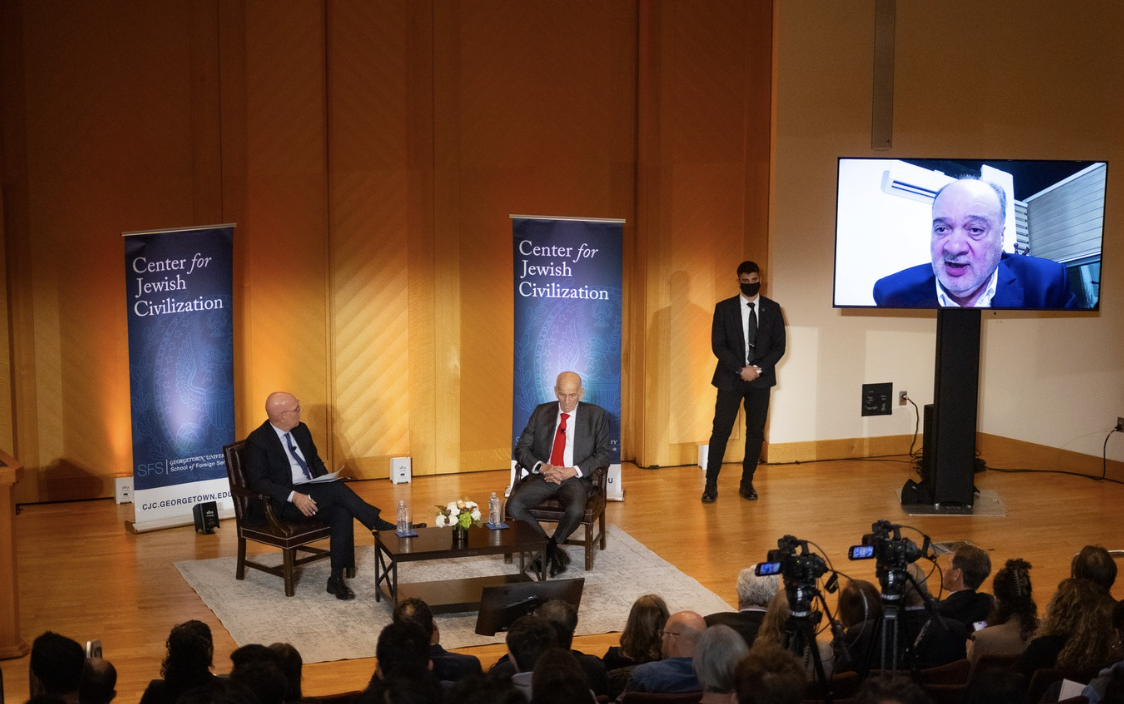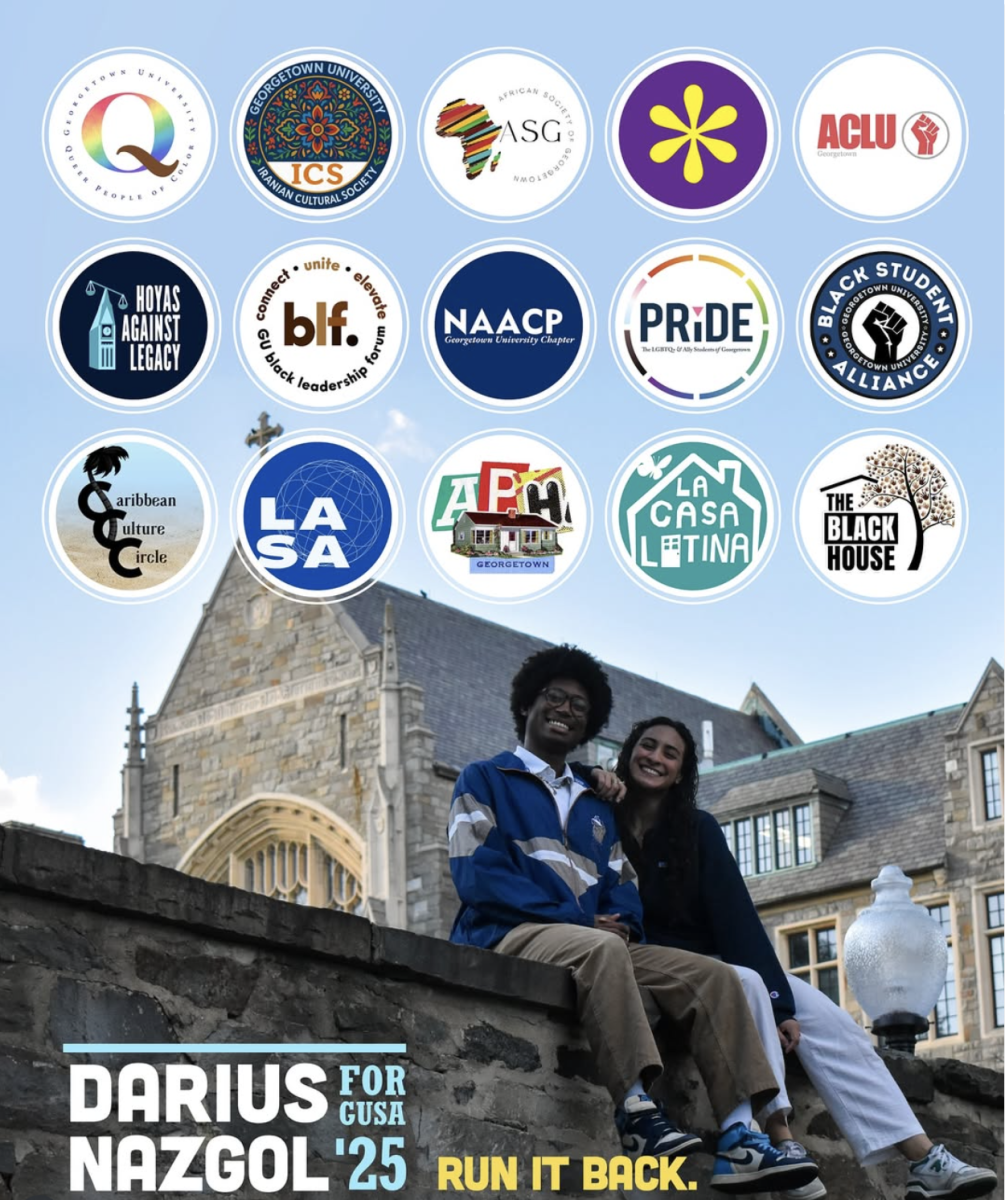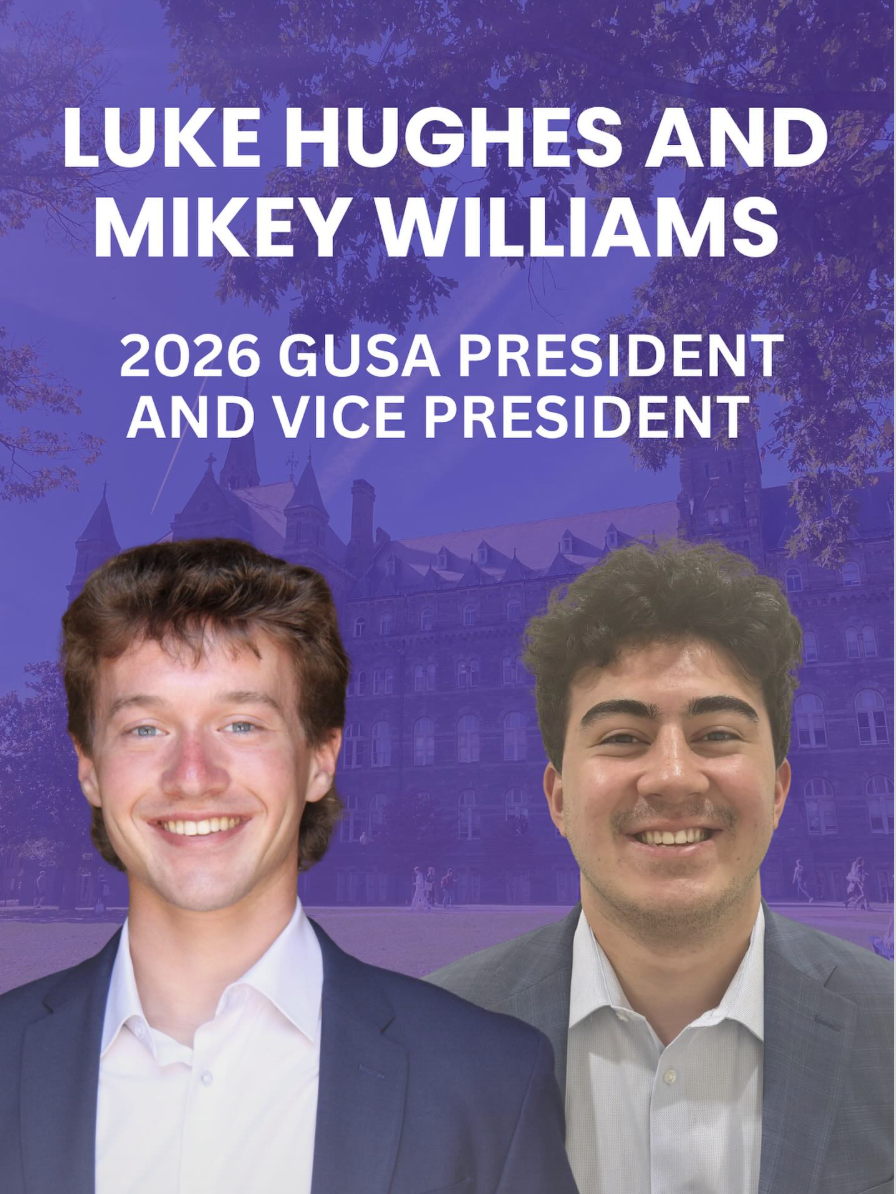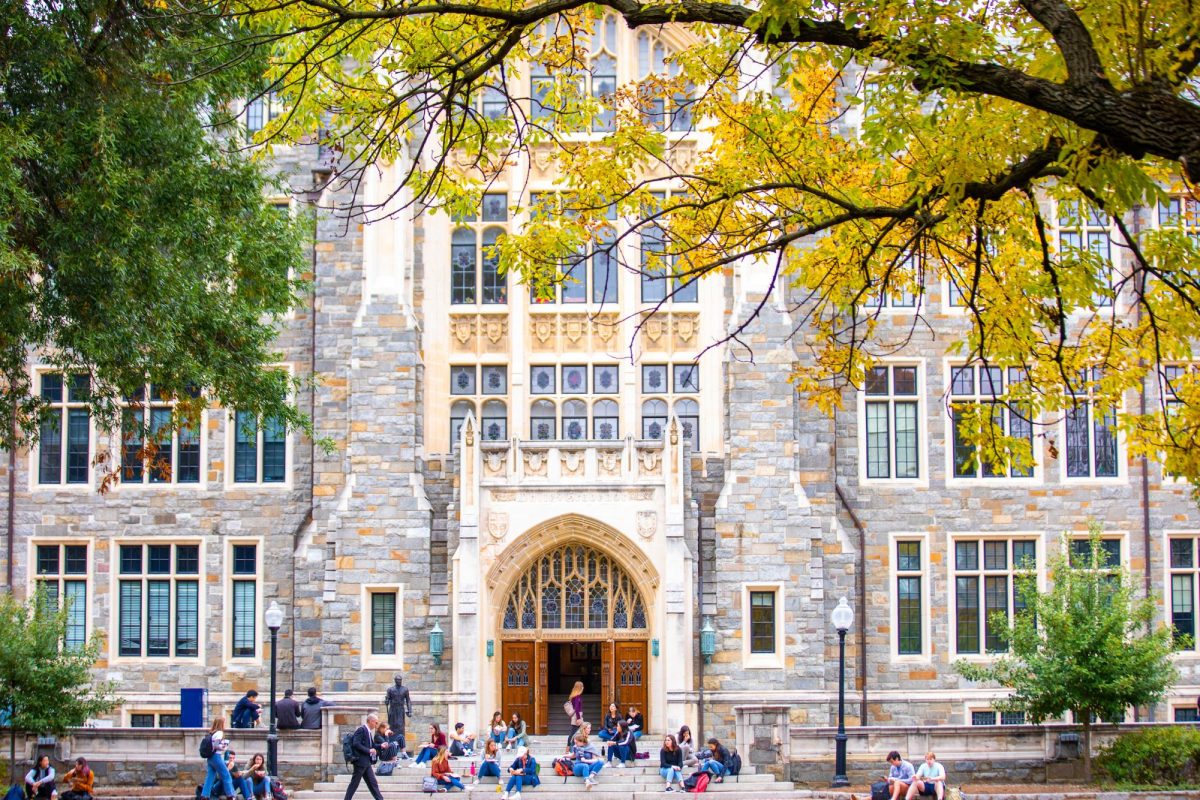Georgetown University plans to shift their shuttle bus system drivers from direct university employment to subcontractors for a third-party vendor, transitioning them off of most university benefits, according to interviews with drivers and documents reviewed by The Hoya.
Drivers for the Georgetown University Transportation Shuttle (GUTS) have worked directly for the university’s supervising office, the Office of Transportation Management (OTM), for decades. As of Sept. 8, Georgetown plans to assign the 18 drivers to either transfer to an outside contractor, which would mean they are no longer university employees, or shift to a position in another department, many of which pay less.

The university’s current plans, which have not previously been reported, involve shifting the operation of GUTS to Abe’s Transportation, a local shuttle bus company, which could reduce many employees’ benefits, including the university’s expansive health insurance and retirement packages. Certain benefits applicable to the drivers’ children, including tuition assistance, will be available for five to 10 years after the transition.
The Hoya spoke with seven GUTS bus drivers and reviewed emails and documents sent to the drivers by university officials. Five of the seven drivers requested anonymity for fear of professional retaliation.
One driver said he considers Georgetown his family, and he wants to continue working with the university but feels betrayed by officials.
“What all of us want is to stay with Georgetown,” the driver told The Hoya. “That’s the biggest thing. The GUTS bus is historic; it’s a part of Georgetown. So for them to contract this out to a third party — they don’t truly understand what the GUTS bus means to Georgetown.”
“It’s not about the money,” the driver added. “I’ve seen kids come in as freshmen and graduate, and they come and celebrate with us, and there’s no feeling like that. It’s a family.”
In two town halls with GUTS employees on Sept. 3 and 5, officials cited a Washington, D.C. law requiring all public and private bus fleets to be electric by 2045 as the reason for the switch.
A university spokesperson confirmed the university’s plans but declined to comment on extensive questions regarding details about the move and drivers’ reactions.
“The University is seeking to assign all current GUTS bus driving operations to a third party vendor and has identified Abe’s Transportation as the preferred vendor,” the spokesperson wrote to The Hoya. “Contracting with Abe’s will help facilitate GUTS’ transition to an electric vehicle (EV) fleet of buses over the next few years, which is required by DC law.”
The university has not finalized specific details, including the timeframe of the switch, and specifics are subject to discussions with the drivers’ union. But based on the drivers’ communications with the university, they believe the transition is imminent.
“Georgetown is aligning with long-term transportation goals and District of Columbia vehicle compliance mandates, including the shift to electric-powered vehicles,” reads an FAQ document provided to drivers at the town halls. “Partnering with Abe’s Transportation supports this transition and positions us to meet evolving regulatory standards.”
In response to the university’s plans, the Georgetown Coalition for Workers Rights (GCWR), a student group advocating for labor conditions at the university, has met with drivers and is organizing a campaign on their behalf.
Elinor Clark (CAS ’27), the facilities team lead for GCWR, said the campaign aims to educate the Georgetown community about the situation GUTS drivers are facing.
“GUTS drivers are vital to Georgetown, and many of them have been here, committed to the community, serving the community for decades,” Clark told The Hoya. “Georgetown is treating them unjustly, and Georgetown is not giving them the respect they deserve.”
Drivers Frustrated by Changes in Benefits
As drivers expect the shift to a third party soon, one of their main concerns is a change in benefits.
While the FAQ document says Abe’s Transportation will offer a $1 per hour raise, the drivers said the raise would not come close to compensating for the sudden loss of benefits. Abe’s Transportation will provide health and retirement benefits, replacing the university’s offerings, and will reduce paid days off. The drivers will remain eligible for tuition assistance, which covers 67% of tuition, for five years for themselves and 10 years for their dependents.
For drivers such as Andrew Walters, benefits — not the salary — are one of the main reasons they have remained working for the university. Walters said the tuition assistance would ensure he could send his son to college.
“We could be working for the city — our drivers get paid less than the District of Columbia,” Walters told The Hoya. “Every one of us are still here. I came here because my son wanted to go to college, and I heard that if you work for Georgetown, they would pay your tuition to go to college.”
GUTS bus drivers make around $22 per hour, according to Noel Tiongson, a driver, and other drivers. Drivers for the Washington Metropolitan Area Transit Authority (WMATA) make nearly $31 per hour.
Walters said he recently bought a house for his family, but now he will likely have to give up the mortgage due to the changes in health care and retirement benefits.
According to a presentation at the town hall, Abe’s Transportation uses a UnitedHealthcare plan that covers 90% of an employee’s healthcare costs. Currently, Georgetown employees can choose between five insurance plans, all of which cover 100% of “network preventive care,” including routine visits and screenings. The plans’ deductibles and copays vary.
During the town hall presentation, slides outlined that Abe’s Transportation would “offer a similar plan” to one of the university’s signature plans, though the presentation made no specific promises and said Abe’s Transportation will maintain the 90% limit.
According to the seven drivers, many of their preexisting conditions render them ineligible for certain coverage under UnitedHealthcare. The Hoya could not independently verify their specific claims, but UnitedHealthcare has a long history of denying claims, particularly based on preexisting conditions.
The switch to Abe’s Transportation would also impact their retirement benefits. According to the presentation, while Abe’s Transportation’s contribution to retirement savings accounts is capped at 6% of earnings — provided the employee contributes 12% of their salary — the university’s contribution reaches 10% of earnings after the driver contributes just 3%, for those who have worked for over two years.
Tiongson spoke at the town hall against the change of employer, and he said Abe’s Transportation’s offerings pale in comparison to the university’s longstanding benefits.
“From the proposed point of view, it doesn’t even compare to what we have right now,” Tiongson told The Hoya.
The university spokesperson said Abe’s Transportation will offer “comparable compensation and benefits” to affected drivers.
Abe’s Transportation referred a request for comment about their benefits to Georgetown.
Clark said, based on her multiple conversations with GUTS bus drivers, the university’s potential plan with Abe’s lacks transparency, leaving drivers uncertain.
“Many bus drivers rely on benefits such as TAPs, the tuition assistance program, to ensure the success of their families, their children, their grandchildren,” Clark said. “They’re valued members of our community, they’re valued employees of our community, and they deserve to be treated just as every other member of our community.”
Drivers will maintain their current union, Service Employees International Union (SEIU) Local 1199, according to the university spokesperson. The spokesperson added that Georgetown is “committed to upholding” its Just Employment Policy, which provides certain benefits to contracted workers.
The spokesperson said the university and the union have met to discuss “some modifications” to the collective bargaining agreement based on differences between benefits offered by Abe’s Transportation and Georgetown.
Jennifer Gordon, a professor of employment and labor law at Fordham Law School, said that while she cannot comment on GUTS drivers’ specific situation, subcontractors generally reduce benefits as a “cost-cutting” measure.
“For a subcontractor to be competitive, they’ve got to come in with a lower price, and because the bulk of their business is human labor, the money is going to come out of the wages and benefits of the workers,” Gordon told The Hoya. “Subcontractors that thrive in the market are those that can keep those costs low. That is a synonym for holding down wages and worker benefits.”
“Speaking generally, being shifted from being a full employee of a large corporation to being an employee of a subcontractor of that corporation increases how precarious the work is and decreases the benefits for the workers,” Gordon added.
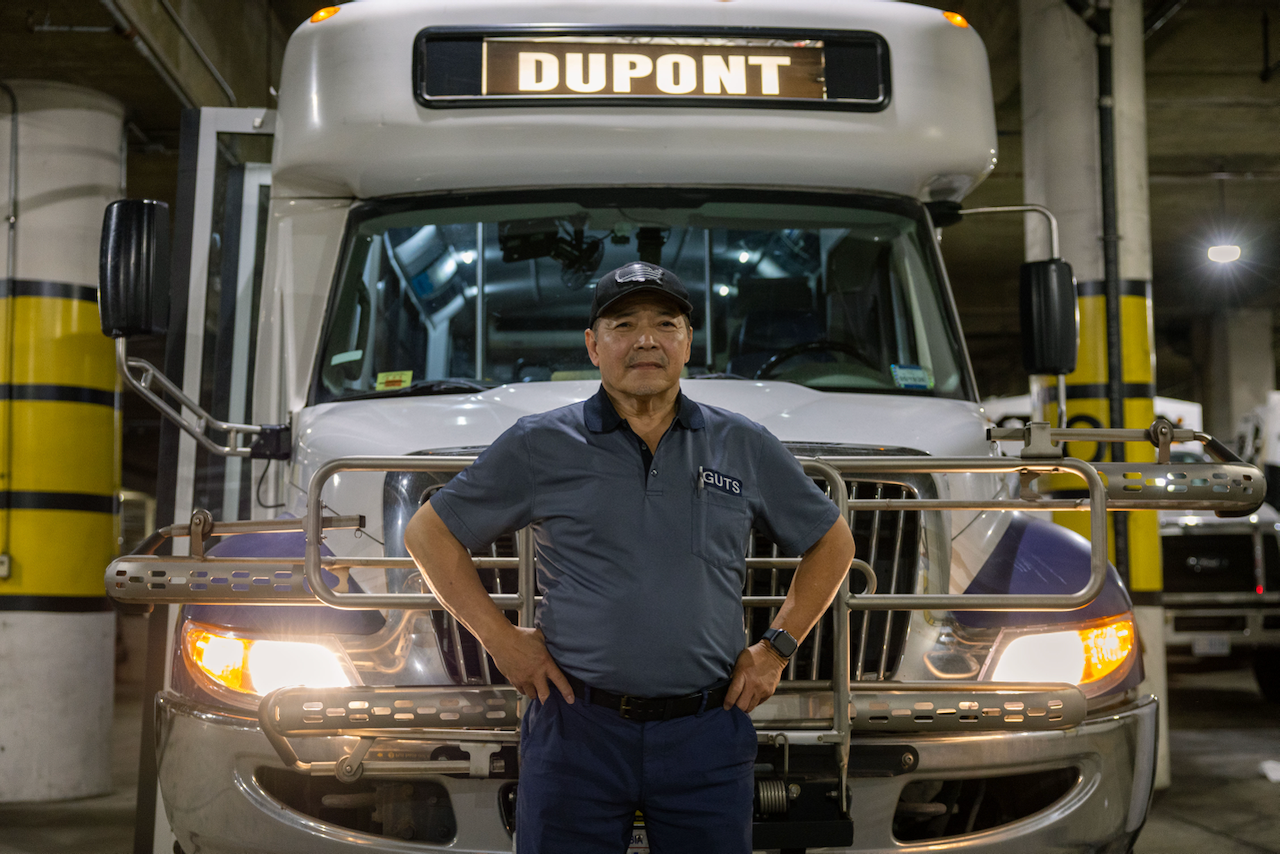
‘Like Starting Over’: Drivers Say They Feel Abandoned
A second driver said they take pride in driving for GUTS and feel shaken up by the announcement.
“All these years we were under the banner of Georgetown University, and we were always proud to be members of Georgetown University,” the driver told The Hoya. “Now, they just come and hold a meeting and say, ‘You’re no longer part of Georgetown, you’re under a third party company.’ We never planned for that.”
The drivers emphasized the services they have provided to the university and the bonds they built with the community as reasons why they would like to stay with Georgetown.
The seven drivers have all worked for GUTS for over a decade — some have worked with the university for 35 years. A third driver said many of them were prepared to eventually retire at Georgetown, complete with a retirement package that would make the long-term service worthwhile.
“Hearing this was disappointing because I’ve been here 14 years and I like what I do,” the driver told The Hoya. “I was looking forward to retiring here. Now, to go work for another company is like starting over.”
At Georgetown, the drivers said they double as emergency essential workers, including being on call during snow days to help plow and working during the COVID-19 pandemic, with some even working over their shifts and spreading coronavirus to their families. GUTS drivers have given advice and helped students, faculty and staff for decades.
The GUTS bus drivers said they are among the higher-paid facilities staff because of the skills and licenses required, according to Tiongson and other drivers. Many of the drivers previously worked on other teams, such as housekeeping, before moving to GUTS, where they have attained a certain level of seniority in the university’s facilities staff.
As an alternative to working for Abe’s Transportation, the university is offering other staff roles — though the drivers still must apply if they want to transfer roles. At the town halls, the university officials provided the drivers with a printed list of positions, most of which the drivers said were a step down from their current role, both in seniority and pay.
The second driver said GUTS drivers believe the university is sidelining them, and university officials do not understand the importance of their work.
“These people, these decision-makers, they’re new to Georgetown, and they’re treating us like they have no attachment to us,” the driver said. “It’s just like a business transaction. Whoever gets up to speak, it’s all new people and they don’t know the value of the service we are providing each and every day.”
Donna Poillucci — the university’s assistant vice president of facilities and residential services — joined Georgetown in September 2024, and, according to drivers, other new administrators have also started positions in OTM within recent weeks.
In an email to GUTS drivers, Poillucci said the town halls were “informal” and announced Abe’s Transportation as the “preferred vendor.”
“As previously announced, the University is seeking to assign all current University bus driving operations to a third party vendor,” Poillucci wrote in the email. “We have identified Abe’s as the preferred vendor and Abe’s has committed to offering bus driver positions to every impacted bargaining unit employee.”
In part, the university also said they have Abe’s as the “preferred vendor” to remain in compliance with the D.C. law mandating electric buses for public and private fleets. The law — which aims to advance clean energy standards — phases in over the next 20 years, with the first benchmark in 2030, when 50% of vehicles in the university’s fleet are required to be “low-or-zero-emission vehicles.”
The first driver said it was difficult for him to believe the university’s justification for the change since the District’s law does not mandate full compliance until 2045.
“For them to come out of nowhere and say this and do this is to us is disrespectful,” he said. “It’s a slap in our face. And to give us the reason — they can’t come in accordance with D.C.’s electric bus law — we think that’s a bunch of bull crap.”
None of the models Abe’s Transportation lists on its website are electric, but the company deferred a request for comment to the university. The university spokesperson did not respond to a question about the electric buses in their fleet, or the possibility of them adding electric buses.
Tiongson said he believes the university’s choice is not representative of Jesuit values.
“There’s a certain kind of reputation that has more to do with morality, civic-mindedness,” Tiongson said. “You’re going to do this to us, you think you should still deserve to be called a civic-minded university that has a Jesuit tradition? No.”
“What happened to cura personalis? Where is that now?” Tiongson added.
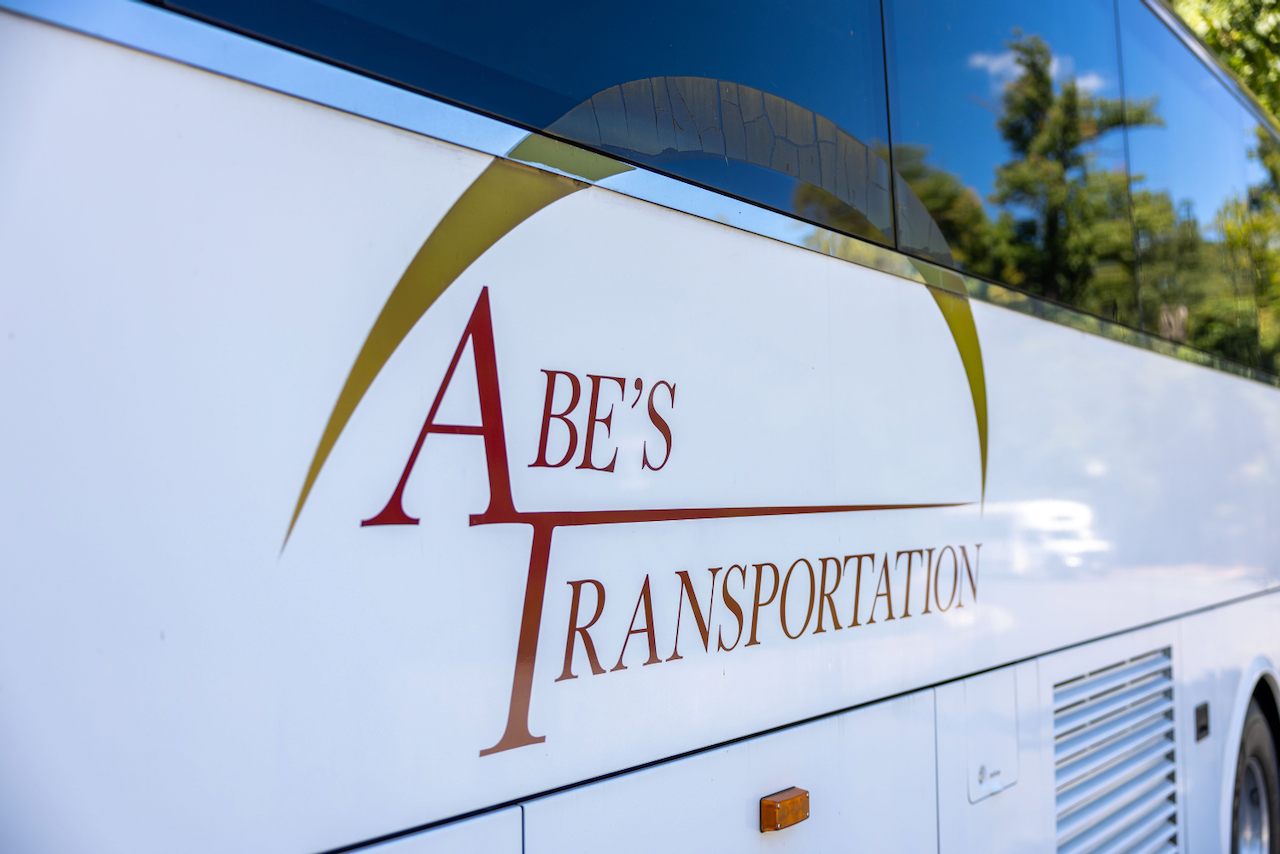
Launching a Campaign
Any agreement between Georgetown and Abe’s Transportation is subject to the drivers’ collective bargaining agreement and negotiations with SEIU Local 1199. In her email, Poillucci said the university’s actions were “in accordance” with the agreement.
The second driver said they have received limited communication from the union, which has made them feel alone.
“Managers, new people, directors, assistant directors, they are calling the shots, and we don’t have much choice in their decision-making,” the driver said. “That’s why we turn to students and the professors to have a bigger voice somewhere where we can’t.”
Angel De La Rosa Pena, the representative for SEIU Local 1199, did not respond to multiple requests for an interview.
The drivers said they are unsure of their legal rights, the union’s role and their future, which they said leaves them in a state of doubt. All seven do not yet know if they will choose to switch to Abe’s Transportation, transfer to another role or leave the university altogether.
For now, the drivers said they want to advocate robust healthcare and retirement benefits that match the university’s offerings.
GCWR plans to launch a petition Sept. 9 and will encourage students to support GUTS workers during a separately scheduled walkout Tuesday morning. The group will also lead a social media and flyering campaign.
Clark said she hopes Georgetown students put pressure on the administration and advocate GUTS drivers.
“Georgetown needs to listen to GUTS bus drivers and prioritize them in a way that Georgetown promises to protect its community,” Clark said. “Georgetown has consistently shown that they choose profit over workers, over students and over community members, and Georgetown has an opportunity to live up to its Jesuit values and ensure that it takes care of workers on our campus.”
Walters said he remembered wearing his GUTS uniform while shopping and being stopped by a Georgetown graduate who thanked him and his work for GUTS.
“She kept on shaking my hand and telling me thanks for the service that GUTS provided when she was going to Georgetown,” Walters said. “She brought her two little girls over and explained to them what the GUTS bus did for her, that she was living in D.C. and took the bus to school every day for five years. She said she really appreciated the GUTS bus.”
Walters said he hopes the university recognizes the values the drivers provide.
“Georgetown needs to remember what the GUTS bus does. We don’t carry packages, we carry human beings, we carry sick people,” Walters said. “These contractors, they don’t care about people, they don’t care about the sick, they don’t care about the students.”


